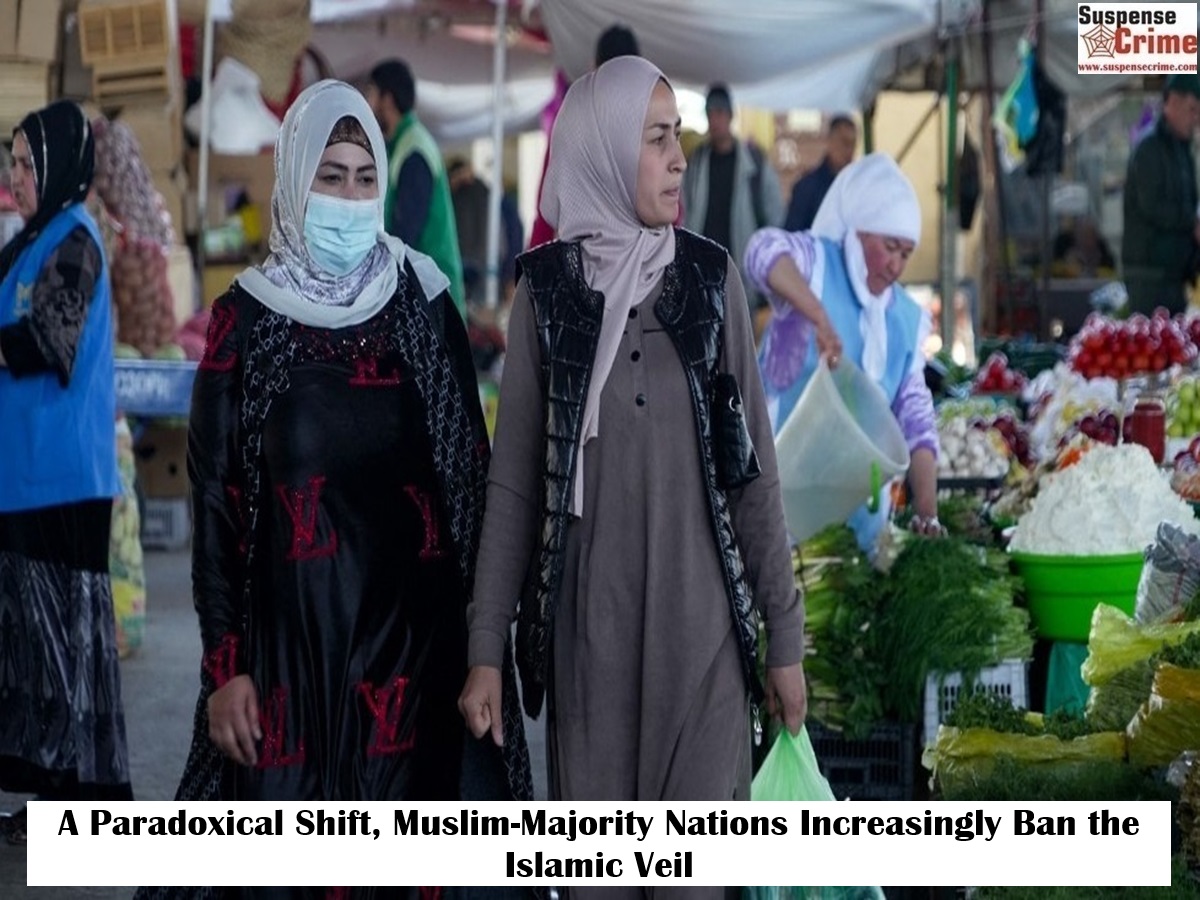
Suspense crime, Digital Desk : In a fascinating and often contentious trend that challenges conventional perceptions, a growing number of Muslim-majority nations are enacting or reinforcing bans on the Islamic veil, particularly the full face covering (niqab or burqa). This move, driven by a complex mix of security concerns, desires for national identity, and interpretations of secularism, marks a significant internal debate within the Islamic world.
Kazakhstan and Tajikistan stand out as recent examples of countries cementing such prohibitions. Kazakhstan, a secular Central Asian nation with a predominantly Muslim population, passed legislation in 2023 banning clothes that "hinder identification" and "prevent free breathing, hide the face." While not explicitly naming the niqab or burqa, the intent is clear, citing concerns over extremism and public safety. Similarly, Tajikistan, another Central Asian republic, has long discouraged overtly religious attire, passing a law in 2024 that explicitly banned "alien garments" and celebrating certain Islamic holidays, targeting the full face veil and promoting traditional Tajik attire instead.
The motivations behind these bans are multi-faceted. Security is often cited as a primary concern, with governments arguing that full face coverings impede identification, posing challenges for law enforcement and counter-terrorism efforts. The rise of extremist groups has amplified these fears, creating a narrative that links certain forms of Islamic dress to radical ideologies.
Beyond security, the push for national identity and secularism plays a crucial role. Many governments in these nations view traditional local dress as part of their cultural heritage, seeing the full veil as a foreign import – often associated with more conservative interpretations of Islam like Wahhabism or Salafism. By banning it, they aim to preserve their unique cultural fabric and reinforce a secular state identity, distinct from religious extremism. In some cases, there's also a nuanced argument, often controversial, that such bans promote women's rights by freeing them from what some perceive as oppressive attire.
This trend is not entirely new. Countries like Syria previously banned the niqab in universities, and Tunisia imposed temporary bans in public institutions. Even in Egypt, where the niqab is widespread, debates over its legality and appropriateness in public spaces, particularly educational institutions, have been ongoing. These internal bans differ significantly from those in Western nations like France or Belgium, where the discourse often centers on integration and secularism in a non-Muslim majority context. In Muslim-majority nations, the bans reflect an internal struggle over the interpretation of Islam, the role of religion in public life, and the balance between individual religious freedom and state control.
As these nations navigate modernity while grappling with their religious and cultural heritage, the debate over the Islamic veil continues to be a poignant symbol of deeper societal and political transformations. The rising trend underscores a complex balancing act between security, identity, and individual religious expression in a rapidly changing world.
Read More: The Looming Shadow of War How Iran, Israel, and the US are Navigating a Dangerous Week

 Share
Share



